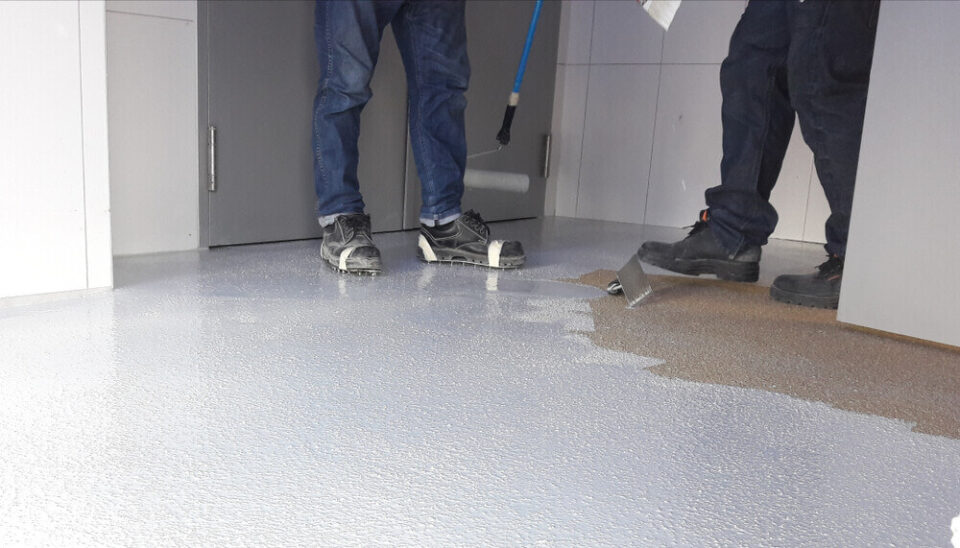When it comes to flooring solutions, homeowners, businesses, and industrial facilities often look for a balance between aesthetics, durability, and affordability. Among the wide range of flooring options available today, epoxy flooring has gained immense popularity worldwide. Known for its glossy finish, resilience, and versatility, epoxy flooring is no longer limited to industrial warehouses—it has found its place in residential, commercial, and decorative spaces as well.
If you are considering upgrading your floors, this comprehensive guide will help you understand what epoxy flooring is, its benefits, types, applications, and why it might be the perfect choice for your space.
What is Epoxy Flooring
Epoxy flooring is a seamless surface created by applying multiple layers of epoxy resin—a mixture of polymers and hardeners—onto a prepared concrete base. Once cured, this combination forms a strong, durable, and chemical-resistant surface. Unlike traditional flooring materials such as tiles, wood, or vinyl, epoxy flooring bonds directly to concrete, creating a hard-wearing finish that can withstand heavy traffic and impact.
The glossy, mirror-like appearance of epoxy floors has made them a favorite for both functional and decorative purposes. From industrial warehouses to stylish kitchens, epoxy adapts to different environments with ease.
Types of Epoxy Flooring
Epoxy flooring is available in several types, each designed to meet specific needs:
Self-Leveling Epoxy Floors
This type of epoxy spreads evenly over new or old concrete, creating a smooth, durable surface. It is ideal for commercial buildings, kitchens, warehouses, and garages.
Epoxy Mortar Floors
Made with 100% solid epoxy mixed with quartz or sand, this is the toughest type of epoxy flooring. It is perfect for heavy-duty industrial environments requiring maximum durability.
Quartz-Filled Epoxy Floors
Combining epoxy with quartz grains, this flooring type offers high durability with decorative appeal. It is commonly used in restrooms, lobbies, schools, and showrooms.
Anti-Static Epoxy Floors
Also called electro-static dissipative (ESD) epoxy, this type prevents the buildup of static electricity. It is ideal for laboratories, electronic manufacturing plants, and healthcare facilities.
Metallic Epoxy Floors
A stylish and modern option, metallic epoxy uses metallic pigments to create unique, three-dimensional effects. Popular in restaurants, showrooms, and luxury homes, it delivers a high-end look with durability.
Advantages of Epoxy Flooring
Epoxy flooring has become a preferred choice for many reasons. Here are some of the key benefits:
Extreme Durability
Epoxy forms a hard, impact-resistant surface that can handle heavy machinery, high foot traffic, and daily wear without losing its shine.
Chemical and Stain Resistance
Unlike traditional flooring, epoxy is highly resistant to oil, chemicals, and stains, making it perfect for garages, factories, and kitchens.
Low Maintenance
Epoxy floors are seamless and non-porous, which makes cleaning and maintenance easy. A simple mop or wipe keeps them looking new.
Enhanced Safety
Epoxy coatings can be designed with anti-slip additives, ensuring safety in areas prone to spills and moisture.
Cost-Effective
Compared to other flooring materials, epoxy flooring offers excellent value for money because of its long lifespan and minimal maintenance.
Aesthetic Appeal
Available in various colors, textures, and finishes—including glossy, matte, and decorative designs—epoxy can dramatically enhance the visual appeal of any space.
Applications of Epoxy Flooring
Epoxy flooring is versatile, making it suitable for a wide range of applications:
Residential Spaces
Garages: Highly durable and resistant to oil stains and vehicle traffic.
Basements: Moisture-resistant and easy to clean, making basements more functional.
Kitchens & Living Rooms: Metallic and decorative epoxy create stunning, high-gloss floors perfect for modern interiors.
Commercial Spaces
Retail Stores & Showrooms: Offers a professional and polished look while handling heavy customer traffic.
Hotels & Restaurants: Enhances ambiance with stylish finishes while ensuring easy cleaning and hygiene.
Offices: Adds a sleek, modern appearance with low maintenance needs.
Industrial Facilities
Warehouses & Factories: Durable enough to withstand forklifts, heavy machinery, and chemical spills.
Pharmaceutical & Food Plants: Seamless, hygienic surfaces that meet strict health and safety standards.
Hospitals & Laboratories: Anti-static and antimicrobial epoxy flooring provides a safe and sterile environment.
Maintenance Tips for Epoxy Flooring
Although epoxy floors are low maintenance, a little care ensures their longevity:
Regular Cleaning: Sweep and mop to prevent dirt buildup.
Avoid Harsh Chemicals: Use mild cleaners instead of abrasive solutions.
Protective Mats: Place mats in high-traffic areas to extend lifespan.
Immediate Spill Cleanup: Wipe spills quickly to prevent staining.
Periodic Resealing: For commercial and industrial floors, resealing can extend durability.
Why Epoxy Flooring is a Smart Choice
With its unique combination of durability, affordability, and beauty, epoxy flooring is suitable for almost any environment. Whether you’re designing a chic retail outlet, upgrading your garage, or building a heavy-duty factory floor, epoxy adapts to your needs. Its seamless surface, resistance to damage, and customizable finishes make it one of the most versatile flooring options available today.
Final Thoughts
Flooring is one of the most important elements of any space, influencing not only its appearance but also its functionality and comfort. Epoxy Floorings Dubai stands out as a solution that ticks all the boxes—durability, style, low maintenance, and cost-effectiveness.
From residential homes to industrial complexes, epoxy flooring delivers exceptional performance while transforming ordinary floors into extraordinary spaces. If you are seeking a flooring option that combines practicality with sophistication, epoxy flooring is an investment you will never regret.

